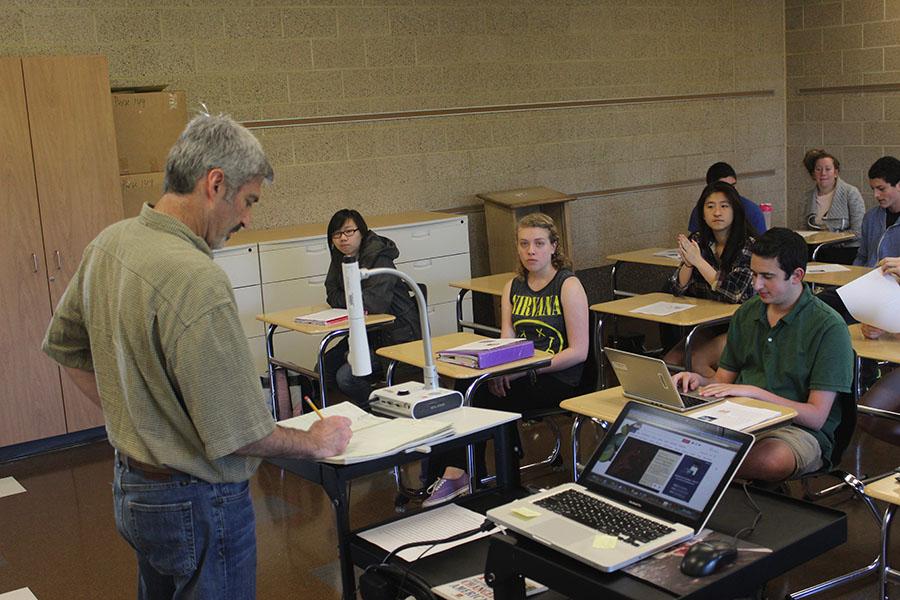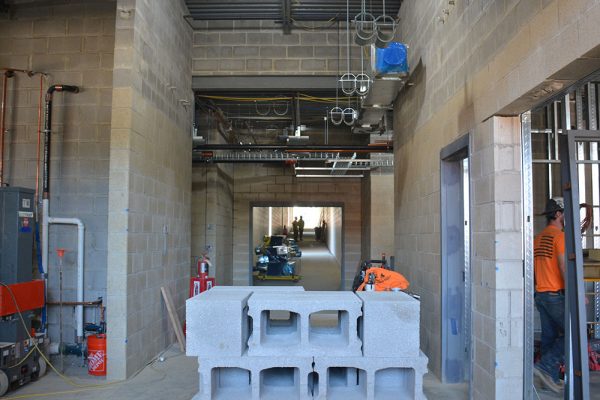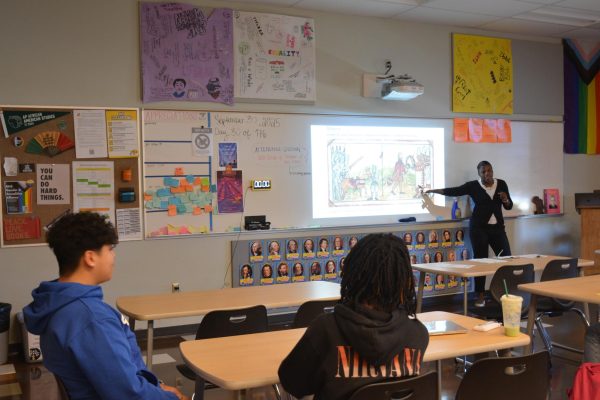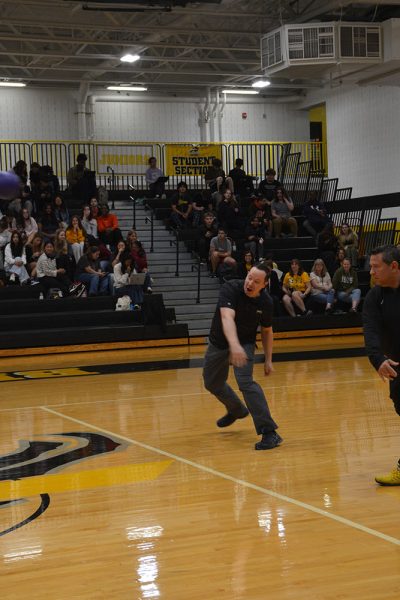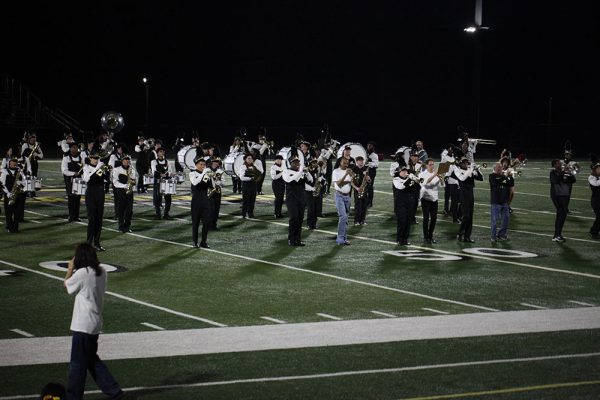BHS Offers AP US History to Freshmen
In recent years, BHS students have had the opportunity to take Advanced Placement (AP) classes in their freshman year.
Currently, AP US History is the only course offered to all freshmen. BHS guidance counselor Meghann Sullivan explained that most other AP courses have prerequisites that freshmen must pass before taking the class.
Sullivan added that being chosen for an AP class during freshman year depends greatly on 8th grade recommendations.
“My first inclination is to trust what was recommended by [a student’s] middle school teacher,” Sullivan said. “Their middle school teacher is very aware of their strengths, of their challenges, of their skills [and] habits.”
According to the The College Board, most freshmen are not prepared to take AP courses.
“Exam results show that, for the most part, 9th grade students are not sufficiently prepared to participate in a college level course,” The College Board’s AP Central web site states. “Therefore, the College Board believes these students would be better served by coursework focusing on the academic building blocks necessary for later, successful enrollment in college level courses.”
Superintendent Dr. Bob Hardis noted that even though it is not typical for freshmen to take AP classes, due to changing state curriculum standards, district leaders felt it appropriate to offer AP classes to those who wanted to take them.
“We were looking at our course progressions, and over the last several years the state has changed certain required classes for graduation, and as a result of that, the end-of-course tests for those courses…” Hardis said. “…Adjusting course progressions was being responsive to changes in the state curriculum standards.”
In an email, Hardis specified that adjustments to the social studies course progression led to US History being required by Beachwood during freshman year. The US history end-of-course exam is therefore administered at the end of ninth grade and the AP US History course is offered the same year to stay in alignment.
Hardis added that another reason AP classes are offered to BHS freshmen is because of the growing desire among students to take AP.
¨We believe there’s an interest on the part of our students in taking the highest level courses they can… in whatever content area and at whatever age they’re at,” he said. “There’s a huge demand in Beachwood… students want to challenge themselves.”
AP US History teacher John Perse explained that this is the second year he has had freshmen in his AP US History class. Last year was a mix of freshmen and sophomores, and this year his AP US History classes are almost entirely freshmen.
Perse added that AP classes are much different than the general curriculum.
“AP classes go into much greater depth than non-AP classes. They move at a much faster pace than regular classes,” he said. “They require a much greater level of independent thought, abstract reasoning and the ability to work on your own outside of class.”
Perse explained that because of the high level of independent thinking required in AP classes, some freshmen may not yet be ready to take the courses.
“That doesn’t mean that the freshmen aren’t smart; they are…[It] doesn’t mean they’re not willing to work hard; I think most of them [are],” Perse added. “It’s a question, for me, of ‘Are you ready for it? Are you intellectually mature enough?…Are you capable of abstract thinking?…Are you willing – do you have the stamina to grind through this?’”
Freshman Ruth Brown previously considered taking AP US History but now takes US Studies due to scheduling and an increased workload. She feels that freshmen should take AP if it interests them.
“I think if history really interests you, then AP History is a good idea…,” Brown said. “…but if it doesn’t interest you, and you just want to have AP on your transcript, freshman year is not the time to do that.”
Freshmen Athena Grasso and Gabe Colmenares currently take AP US History. Both feel that they are capable of doing the work in the class.
“I think that it’s going to make me a better student, and I think I’ve made a good choice so far,” Grasso said. “I chose to take the AP class because I felt that I’m capable of that level…The homework is definitely – maybe a little bit more than I would expect, but it’s just what comes with an AP class.”
“I think I’ve learned more than I would have otherwise. I think I have a greater background than if I would not have taken AP,” Colmenares said. “It depends on the field that I go into, but…[the AP class] keeps my doors open, so I can choose to do what [field] I want.”
While AP classes seem to offer more opportunities, Grasso admitted that taking an AP course certainly requires extra effort in order to succeed.
“…Obviously, you’re a freshmen, and the whole high school experience is new, so having yet another class to add on to the load is going to make life harder for you,” Grasso said. ¨I think that definitely trains you to be a responsible student, though, if you take it in the right way. If you just give up, it’s not going to work…”
Beachwood students seem to have a greater interest in advanced courses, and Sullivan explained that many factors play a role in deciding individual students’ course placement.
“When we do scheduling, and we talk to students, and we talk to families, we talk about things like ‘What are you study skills? What are your priorities? Where are you finding balance? If you take on an AP class now, where is that balance?’ ” Sullivan said.
“…My philosophy is I very much want to nudge students out of their comfort zone…That’s the only way progress can happen. I don’t want to hurl [them] over the cliff…” Perse added. “I certainly don’t want [students] to get turned off of the AP experience because I would love to see [them] take more and more AP and honors classes…and I would love to actually have more students in AP than I do, but I also have to be honest: it’s hard.”

Prerna Mukherjee has been writing for The Beachcomber since the fall of 2016. She covers a variety of school and community events. In her free time, Prerna...



